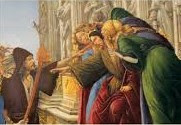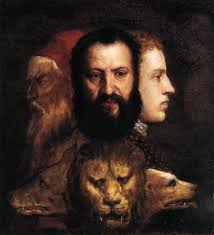Bartolomè de las Casas and early Christian literature
Bartolomè de Las Casas(1484-1566) is an theological men and Dominican
monk he has told about massacres of Hispanic in La Isla Espanola, this is
actual Cuba, but following read of this book it is very strange that he told,
at 1552, about slaughters of Spanish; he says that he has seen these massacres,
it is unreliable, why? Because he has not counted residents in La Isla
Espanola, therefore he could not count dies, second deduction, he indicated always
same island but we must think that other names Spanish had given to other town,
no certainly cities, but simple town also wooded, it is sufficient that state
of Florida in USA, it has had this name from the captain that with Amerigo Vespucci, just in landed, he has seen a very little
place of actual state he has said that this town remembered region where he
born, this is Florinda, that during time has becomes Florida; therefore we can
think that after 59 years Spaniards could change names to very much places;
very strange that Bartolomè de las Casas didn’t mentioned these names and
descriptions of these places, and I repeated how much were the natives, he says
millions, but if it were true they have outclassed the Spaniards, but it has
not happened, why? Simple because natives were not millions and Spaniards were
not millions. These narration is derived from early Christian literature, where
are told persecutions and other; histories of martyrs and others, but Christian
after 2th century after Christ they were may 50 thousand on 50 millions of people,
therefore they were not millions, but it is very important model to Bartolomè
de las Casas, because he could emphasize these events; therefore he told what
has heard or read; therefore a step of this book says: “I speak with truth, as
far as I know and I have seen all time after mentioned”; this is true? No
certainly, because he says “as far as I know and I have seen all time after
mentioned”, but if you have seen it you just known it, therefore it is right to
say: “I can tell that I have seen”, but
no certainly “as far as I know”, because you can have known it through other
sources, also indirect, therefore unreliable, because in conformity of opinion
of Mark Block; if first soldier has an order, this is attack, and he have to
say it to second and to third and so, the last soldier has understood that
battalion must retire, if these dies were been millions somebody has counted
these millions of natives, why isn’t number; these
are lies alone, and we accustomed to these lies to history above all. somebody can say that he has privated of
millions of money, he must have had the sum inter because he has counted that
100 millions now lack 1 or 2, but he has had sum precedent and after he can
give count, but in book of Bartolomè this count isn’t, therefore how much
natives were and how much Spaniards had killed? We haven’t number neither of
natives or Spaniards and dies; I hope that nobody historical man is going
mistake so, and it is impossible, that he doesn’t lies, but it is vague hope.
Alessandro Lusana














.jfif)
.jfif)



